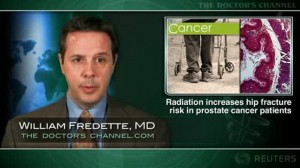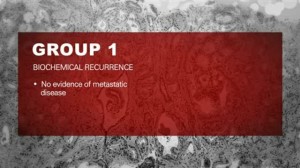NEW YORK (Reuters Health) – Androgen suppression therapy – and its attendant side effects — may not be necessary for patients with intermediate-risk prostate cancer treated with combination brachytherapy and external beam irradiation, New York-based investigators report.
The potential benefits of adding androgen suppression therapy to radiation are clear in high-risk patients “in whom the risk of microscopic systemic disease is the greatest,” note the study’s authors at the Mount Sinai School of Medicine, led by Dr. Richard G. Stock. However, the benefits of such a combination are unclear in intermediate-risk patients.
The team retrospectively studied 432 patients with intermediate risk prostate cancer treated between 1994 and 2006. Prostate specific antigen (PSA) levels ranged from 1.4 to 20 ng/mL, and all patients were negative for nodal or metastatic disease. Clinical T stage was T1c to T2c, and Gleason score was no higher than 7.
Their findings are published in the Journal of Urology for February, 2010.
Overall, 350 patients (81%) were treated with a luteinizing hormone-releasing hormone with or without an antiandrogen (median 9 months). All patients received low dose rate brachytherapy and external beam irradiation (biologically effective dose 142 to 380 Gy2). Median follow-up was 56 months (range 23 to 155 months).
The overall 8-year biochemical failure-free rate among patients with and without androgen suppressive therapy was 92% for both groups. There was also no statistically significant difference between the two groups among those with more advanced disease or with more than one intermediate risk factor.
While Dr. Stock’s team points out that longer follow-up may show some benefit of androgen suppression, they recommend that “it should not be used routinely without considering its potential associated morbidity.”
However, the author of an editorial urges caution in interpreting this study, remarking that “intermediate risk disease includes a heterogeneous group of cases with some at low and some at high risk for failure.”
Dr. Mack Roach III writes in the editorial that the data are not compelling enough to recommend abandoning androgen suppression therapy in all intermediate risk cases.
“Patients treated with androgen suppression therapy tended to have higher PSA, Gleason score and T stage with lower biologically effective dose but they did as well as other patients,” he notes.
Reference:
J Urol 2010;183:546-551.




